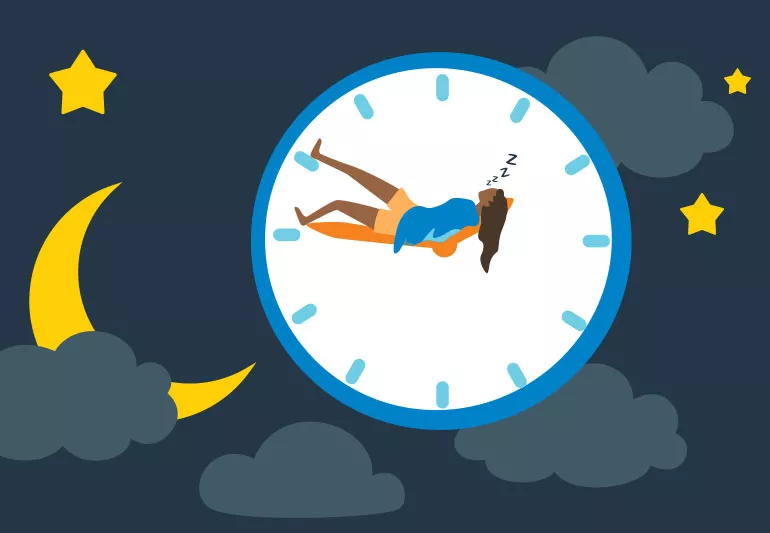For many of us, caffeine is the lifeline that helps jumpstart our mornings and keeps us going throughout the day. Whether it is sipping on a warm cup of coffee, indulging in an energy drink, or enjoying a refreshing iced tea, caffeine is everywhere. But have you ever paused to wonder, How much caffeine is too much? This question is becoming increasingly relevant as we explore our health and wellness choices. In this blog post, we will unravel the mysteries of caffeine, its impact on our bodies, and provide insights for health enthusiasts, wellness aficionados, and coffee lovers alike. You will learn about recommended caffeine limits, signs of caffeine overconsumption, and how to balance your intake for optimal health.
Understanding Caffeine
Caffeine is a natural stimulant found in coffee, tea, chocolate, and various energy drinks. It works by blocking adenosine, a neurotransmitter responsible for making us feel tired. This blockage triggers the release of neurotransmitters like dopamine and norepinephrine, enhancing focus, alertness, and mood. While caffeine is praised for its ability to provide that much-needed energy boost, it can have adverse effects when consumed excessively.
Caffeine metabolism varies from person to person, influenced by factors such as age, weight, and genetics. For some, a single cup of coffee can induce jitters, while others can down multiple cups without a hitch. Understanding how caffeine affects you personally is crucial to managing your intake. By recognizing your body is unique response to caffeine, you can make informed decisions about how much to consume. While caffeine can be beneficial, moderation is key. Too much caffeine can lead to side effects like insomnia, anxiety, and digestive issues. On the flip side, moderate caffeine consumption may offer health benefits, including improved cognitive performance, increased metabolism, and reduced risk of certain diseases.
Recommended Caffeine Limits
When it comes to caffeine consumption, there is no one-size-fits-all answer. However, health authorities like the FDA and European Food Safety Authority have set general guidelines to help you stay within safe limits. For most adults, up to 400 mg of caffeine per day is considered safe, equivalent to about four 8-ounce cups of brewed coffee.
For those curious if Is 200mg of caffeine a lot? the answer depends on individual tolerance. For some, 200 mg may be the perfect amount to stay alert, while others might find it a bit too stimulating. It is important to monitor how your body reacts and adjust your intake accordingly. Pregnant women, individuals with certain health conditions, and those sensitive to caffeine should limit their intake further. In these cases, consuming fewer than 200 mg daily is advisable to reduce potential risks and side effects.
Signs of Too Much Caffeine
Exceeding the recommended caffeine limits can lead to a host of unpleasant symptoms. Knowing these signs can help you gauge if you are overdoing it. Common indicators of caffeine overconsumption include restlessness, headaches, dizziness, and increased heart rate. If you have ever wondered Is 1000 mg of caffeine a day too much? the answer is a resounding yes. Consuming this amount can result in severe symptoms, including heart palpitations, anxiety attacks, and digestive distress. It is crucial to recognize these warning signs and reduce your intake promptly. Listening to your body is vital. If you are experiencing any signs of excessive caffeine consumption, it may be time to reevaluate your daily intake and make necessary adjustments.
Coffee Lovers Dilemma
Coffee lovers often find themselves in a conundrum—how to enjoy their favorite beverage while staying within safe caffeine limits. The good news is that with mindful choices, you can savor your daily brew without overindulging. Consider opting for smaller cup sizes or choosing decaffeinated options for your later-in-the-day fixes.
This allows you to enjoy the rich flavors of coffee without the added caffeine load. Experimenting with various brewing methods can also help you control caffeine levels in each cup, ensuring a delightful experience. Do not forget to pay attention to other sources of caffeine in your diet, such as tea, chocolate, and sodas. These can add up quickly, so being mindful of your total caffeine consumption is key to maintaining balance.
Caffeine in Energy Drinks
Energy drinks have become a popular choice for those seeking a quick energy boost. However, they often contain high levels of caffeine and other stimulants that can contribute to excessive intake. When reaching for an energy drink, check the label for caffeine content and aim for options with lower amounts. Keep in mind that some energy drinks can contain up to 300 mg of caffeine per serving, pushing you closer to your daily limit in just one can. Balancing energy drink consumption with other caffeinated beverages is essential to avoid overconsumption. Consider alternative ways to boost energy, like staying hydrated or getting enough sleep, to reduce reliance on these potent drinks.
Tolerance and Sensitivity
Caffeine tolerance varies widely among individuals. While some people can drink several cups of coffee without feeling jittery, others may experience side effects after a single cup. Factors like genetics, age, and lifestyle all play a role in how caffeine affects you. Understanding your personal tolerance level is crucial for managing intake and avoiding adverse effects. Experiment with different caffeine sources and observe how your body responds. This can help you determine your ideal caffeine intake and ensure a balanced approach to consumption.
Caffeine and Sleep
Caffeine is stimulating effects can interfere with sleep patterns, leading to insomnia and restlessness. Avoid consuming caffeine late in the day to minimize sleep disruptions and promote restful nights. For many, cutting off caffeine at least six hours before bedtime helps ensure a good night sleep. This allows your body ample time to metabolize and eliminate caffeine from your system. Establishing a caffeine-free evening routine can improve sleep quality and overall well-being. Consider herbal teas or warm milk as soothing alternatives to wind down after a busy day.
The Role of Genetics
Genetics plays a significant role in caffeine metabolism. Some people have a genetic predisposition to metabolize caffeine quickly, while others process it more slowly. Understanding your genetic makeup can offer valuable insights into your caffeine tolerance and sensitivity. Genetic testing services can provide information about how your body processes caffeine, empowering you to make informed choices. Armed with this knowledge, you can tailor your caffeine consumption to suit your unique genetic profile, ensuring a balanced and enjoyable experience.
Caffeine and Health Benefits
While caffeine is often associated with negative side effects, it also boasts several health benefits when consumed in moderation. Studies have shown that moderate caffeine intake may improve cognitive function, enhance physical performance, and reduce the risk of certain diseases. For coffee lovers asking, Is 600 mg of caffeine a day too much? the answer lies in moderation. Sticking to recommended limits allows you to enjoy these potential benefits without overindulging. Incorporating caffeine into a balanced lifestyle can complement other health practices, such as regular exercise and a nutritious diet, for optimal well-being.
Moderation is Key
When it comes to caffeine, balance is the key. By understanding your personal tolerance, monitoring intake, and making mindful choices, you can enjoy caffeine is perks without facing undesirable consequences. Being aware of your daily caffeine sources, whether from coffee, tea, or energy drinks, helps you stay within safe limits. Remember that moderation applies not only to caffeine itself but also to sugar and other additives often found in caffeinated beverages. By practicing moderation, you can fully appreciate caffeine benefits while minimizing risks and maintaining a healthy lifestyle.






Comments
Leave a comment